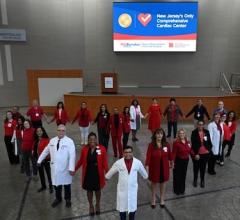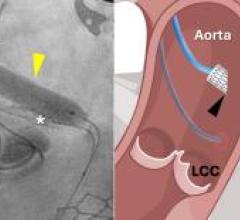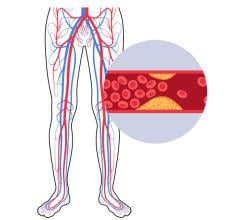In the largest randomized, multicenter trial to compare drug-eluting stents (DES) and bare-metal stents (BMS) placed in saphenous vein graft lesions, researchers found that DES led to a lower combined rate of death, heart attack and repeat revascularization. The research findings were presented this week at the American College of Cardiology’s 60th Annual Scientific Session.
While saphenous vein grafts (SVGs) have been used extensively in coronary artery bypass graft (CABG) surgery, these conduits often develop atherosclerotic disease that results in vessel narrowing or closure. Conducting a second CABG surgery to fix the graft is possible but can result in higher mortality and morbidity rates than the first operation. Performing angioplasty with a stent is an alternative to repeat CABG surgery, and research is still being conducted to optimize this procedure.
“DES have proven superior to BMS in all coronary artery lesion subsets examined, but their performance has been insufficiently evaluated in SVG lesions,” said Julinda Mehilli, M.D., director of clinical research and data coordinating in the Intracoronary Stenting and Antithrombosis Research (ISAR) Center at the German Heart Center Munich, Germany. “The only two very small randomized trials comparing DES with BMS in SVG lesions provided conflicting results. Thus, the aim of the ISAR-CABG trial was to investigate this question in a larger population sufficiently powered to provide information on clinical endpoints.”
For the study, German researchers enrolled 610 patients who had previously undergone CABG surgery. All study patients had subsequently developed at least one lesion in their saphenous vein graft and were randomized to receive either a DES (n = 303) or a BMS (n = 307) in the study angioplasty procedure.
The study’s primary endpoint was a composite of major adverse cardiac events, including death, heart attack, and target-lesion revascularization (TLR) at the one-year follow-up point. The secondary endpoints were the individual rates of death, heart attack, Academic Research Consortium (ARC) definite stent thrombosis and the need for TLR over one year.
The researchers found that the incidence of major adverse cardiac events was reduced by 35 percent in the DES cohort compared to the BMS group. Specifically, 16.5 percent of patients in the DES group experienced the primary endpoint compared with 22.1 percent of patients in the BMS group (hazard ratio [HR] 0.65; 95 percent confidence interval [CI] 0.45 – 0.96; p = 0.028). The reduction in the DES group was primarily due to a significantly lower rate of TLR, which occurred in 7.2 percent of patients in the DES group and in 12.9 percent of patients in the BMS group (HR 0.52; 95 percent CI 0.3 – 0.9; p = 0.020).
The research team found no significant differences in the individual rates of death or heart attack. Additionally, only one patient in the DES cohort experienced ARC-definite stent thrombosis. None of the patients in the BMS group experienced this outcome.
“Saphenous vein graft lesions remain a challenging disease subset for angioplasty. The ISAR-CABG trial, however, demonstrates that DES can safely be used to reduce adverse events in this high-risk subset of patients,” Mehilli said.
The study was funded by the German Heart Center Munich and by Cordis. Mehilli had no disclosures to report.
For more information: www.cardiosource.org


 February 06, 2026
February 06, 2026 









